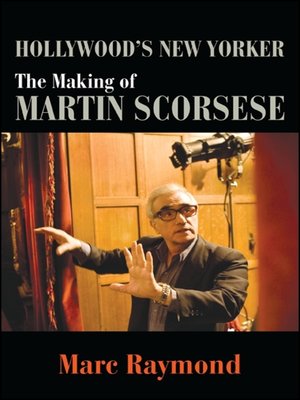Hollywood's New Yorker
ebook ∣ The Making of Martin Scorsese · SUNY Series, Horizons of Cinema
By Marc Raymond

Sign up to save your library
With an OverDrive account, you can save your favorite libraries for at-a-glance information about availability. Find out more about OverDrive accounts.
Find this title in Libby, the library reading app by OverDrive.



Search for a digital library with this title
Title found at these libraries:
| Loading... |
When Martin Scorsese finally won an Academy Award in 2007, for The Departed, it was widely viewed as the crowning achievement of a remarkable film career. But what it also represented was an acceptance by Hollywood of a man who became a prestigious auteur precisely because of his status as an outsider from New York. For someone with a high-culture reputation like Scorsese's, this middlebrow sign of respectability was not about cultural standing; rather, it was about using and even sacrificing his distinctive outsider status for a greater share of industry authority within the world of Hollywood.
In Hollywood's New Yorker, Marc Raymond offers a fresh look at Scorsese's career in relation to the critical and social environment of the past fifty years. He traces Scorsese's career and films through his association with various cultural institutions, from his role as a student and instructor at New York University, to his move to Hollywood and his relationship with the studio system, to his relationship with prestigious institutions like the Museum of Modern Art. This sociological approach to film authorship provides analysis of previously overlooked Scorsese projects, particularly his documentary work, and gives importance to the role his extracurricular activities in the film preservation movement have played in the rise of his reputation.
Hollywood's New Yorker places Scorsese and his films firmly within the various time periods of his career and compares the director with his peers, from fellow New Yorkers like Brian De Palma and Woody Allen to New Hollywood movie brats such as Francis Ford Coppola and Steven Spielberg. The result is a complete picture of Scorsese and the post–World War II American film culture he has both shaped and been shaped by.
In Hollywood's New Yorker, Marc Raymond offers a fresh look at Scorsese's career in relation to the critical and social environment of the past fifty years. He traces Scorsese's career and films through his association with various cultural institutions, from his role as a student and instructor at New York University, to his move to Hollywood and his relationship with the studio system, to his relationship with prestigious institutions like the Museum of Modern Art. This sociological approach to film authorship provides analysis of previously overlooked Scorsese projects, particularly his documentary work, and gives importance to the role his extracurricular activities in the film preservation movement have played in the rise of his reputation.
Hollywood's New Yorker places Scorsese and his films firmly within the various time periods of his career and compares the director with his peers, from fellow New Yorkers like Brian De Palma and Woody Allen to New Hollywood movie brats such as Francis Ford Coppola and Steven Spielberg. The result is a complete picture of Scorsese and the post–World War II American film culture he has both shaped and been shaped by.






